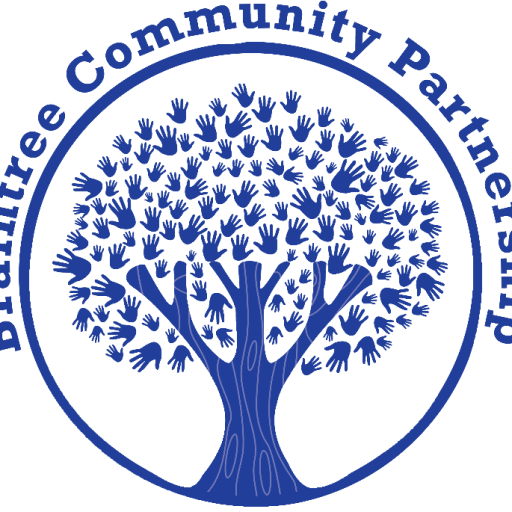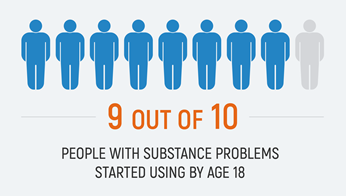learn more
Substance Use Disorders
A Quick Summary
Addition is both a disease of the brain and a mental illness. There are two primary categories of factors that influence addiction:
- Genetic factors: Certain addictions are heritable, meaning they can be passed down by parents to their offspring.
- Environmental factors: One may be at higher risk of addiction if they have experienced trauma in life. Availability of substances also plays a role.
It’s very important to understand that, due to the brain not yet being fully developed, people under the age of 21 are at the highest risk of addiction, which is why it is important to implement risk and protective factors to help ensure youth do not develop an addiction to substances.
Understanding Addiction as a Disease (3:40)
Everyone in the world has a natural addiction to things that are important to survival, like food, water, and sleep. The human body creates these addictions after recognizing something is good and releasing a chemical called dopamine. Dopamine causes you to experience pleasure and makes you feel good, encouraging the continuation of a behavior. Substances like alcohol cause the release of dopamine at much higher levels than seen from other behaviors, such as eating, possibly tricking the brain into believing alcohol is more important than food depending on the level of addiction. People under the age of 21 are at the highest risk of addictive substances being prioritized by the brain.
Why Is Addiction a Disease? (7:26)
While uncertainty prevails amongst many, addiction is in fact a disease. A disease, according to the American Medical Association, comes from the body, has consistent signs and symptoms, and causes harm; all of these traits are applicable for addiction, like many other diseases. Addiction is a disease of the reward circuit in the brain, causing people with this disease to have a stronger urge to use substances. Addiction can be recovered from and is treatable with medications and therapy.
Everything You Think You Know about Addiction is Wrong (14:42)
There are many misconceptions regarding addiction, one being that dependence on a drug is based on usage. This isn’t true: chemical hooks do not cause addiction to a substance. Unfortunately, people with addictions have been historically punished for their addictions, which does solve the problem of addiction. Addiction can develop when people become disconnected from and lose purpose in society, therefore reconnecting people with society is a much better way to help reduce addiction.
The Genetics of Addiction (5:23)
Addiction can be hereditary, with substances such as caffeine and alcohol having higher heritability than others. While environmental factors account for ~50% of those influencing addiction, the other ~50% of factors are influenced by genetics. A genetic predisposition does not mean addiction is certain.

